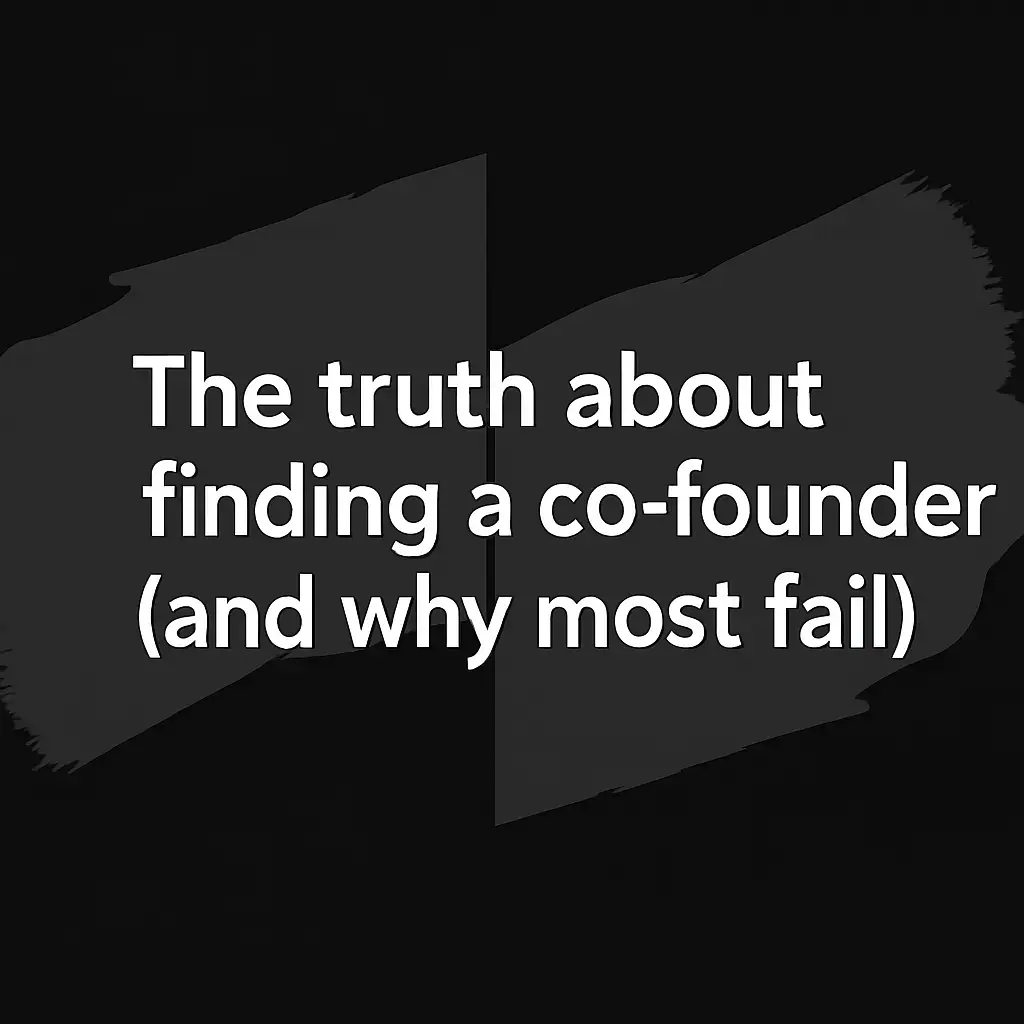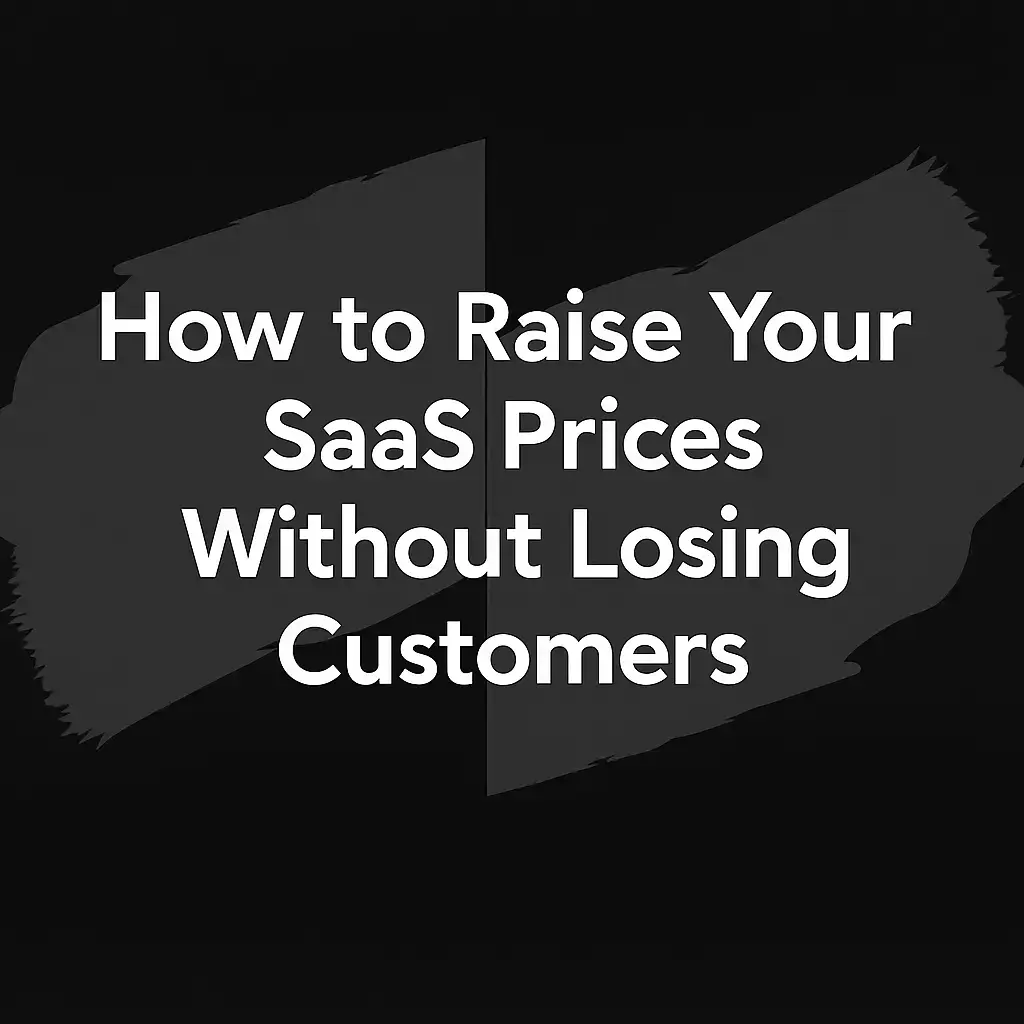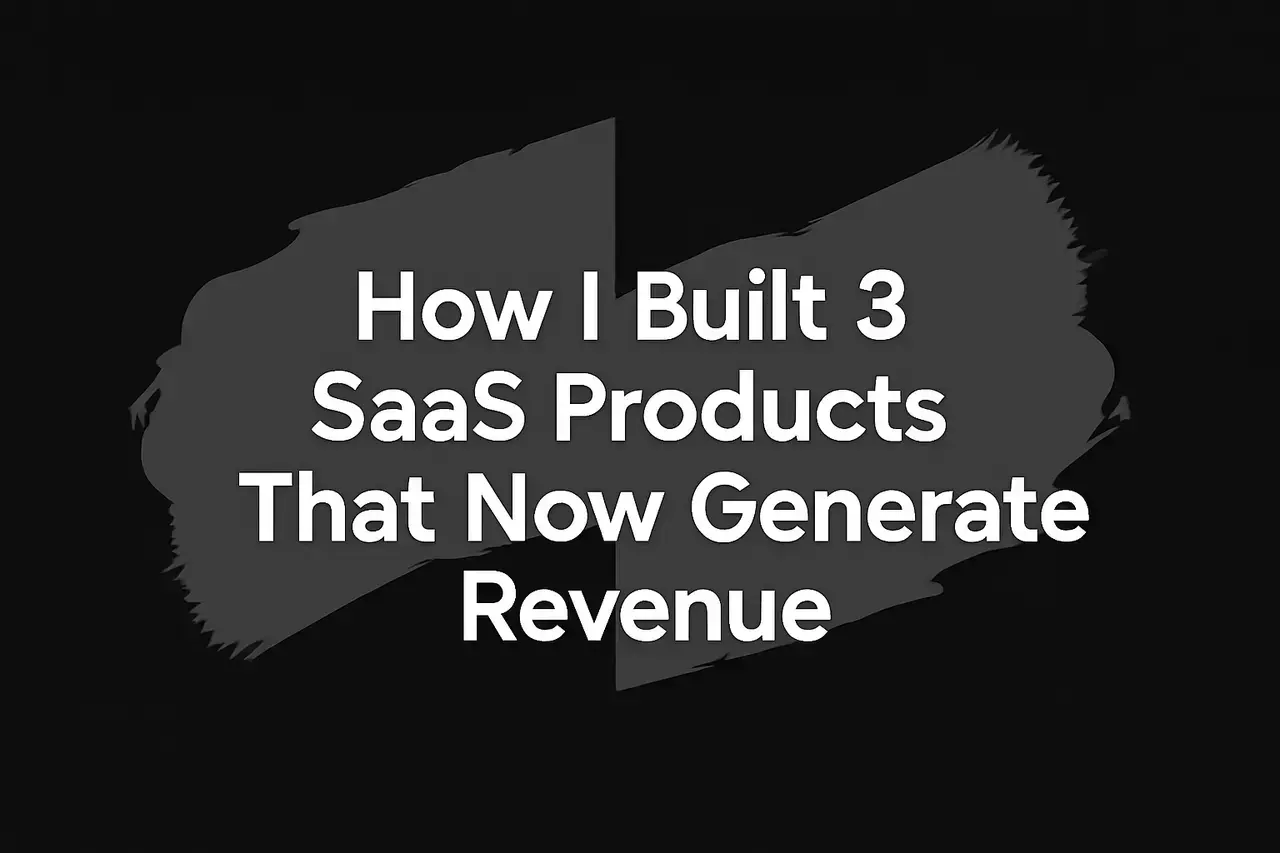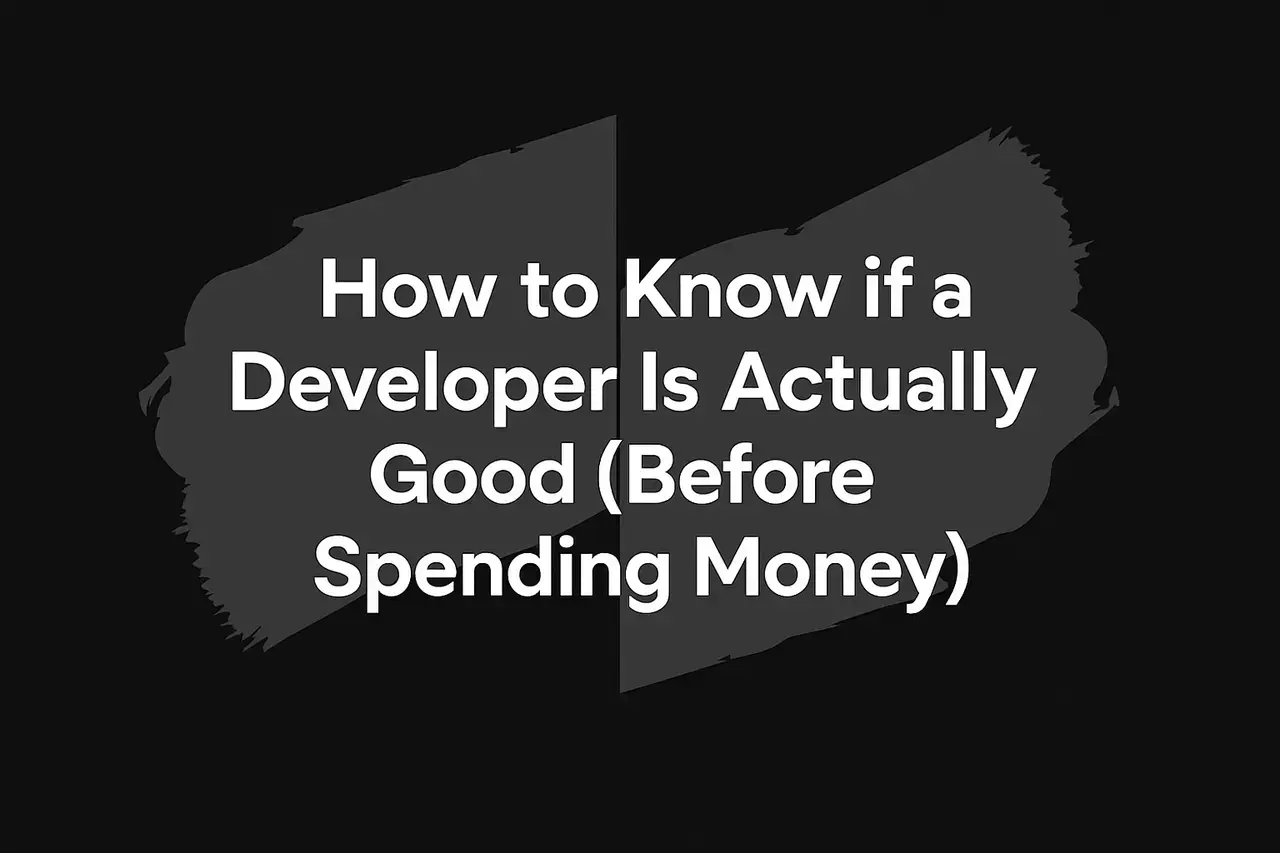Every founder dreams of having that perfect co-founder, someone who understands the vision, complements their skills, and helps turn the idea into a real business.
But here’s the truth most people don’t tell you:
Finding the right co-founder is harder than building the startup itself.
On Reddit, IndieHackers, and Twitter, you see the same questions every day:
“Where can I find a technical co-founder?”
“How do I know if someone is the right fit?”
“Is it okay to start alone?”
And yet, most co-founder searches fail.
Here’s why.
1. People Look for Friendship, Not Complementarity
Many founders start searching for someone they get along with. They want shared interests, similar energy, or just good vibes.
But startups don’t run on friendship. They run on complementary skills.
A marketing founder doesn’t need another marketing guy.
A visionary doesn’t need another visionary.
They need someone who fills the gaps, the builder, the operator, the person who executes when things get tough.
When you pick someone just because you enjoy hanging out, things usually fall apart once real pressure hits.
Deadlines, bugs, and money problems will test every partnership.
2. They Wait Too Long to Start Building
Some founders spend months, even years, looking for “the perfect partner” before writing a single line of code or launching anything.
But here’s the catch:
No one wants to join an idea. People join momentum.
When you already have:
-
a working MVP,
-
first paying users,
-
or even just a validated problem,
it becomes ten times easier to attract a real co-founder or early technical partner.
Builders want to join something that’s moving.
So instead of waiting for the perfect person, start building, even if that means hiring help to get your MVP off the ground.
That’s how most successful founders actually begin.
3. They Confuse Roles and Expectations
“I thought he was handling the tech.”
“I thought she was managing clients.”
“I didn’t know he wanted equity this early.”
Sound familiar?
This happens all the time when founders rush into partnerships without defining clear roles and ownership.
Before you commit to anything, talk about:
-
Who’s responsible for what,
-
Who decides on product direction,
-
How time and equity are split,
-
What happens if someone leaves.
If you can’t have those hard conversations early, the partnership won’t survive later.
4. They Ignore Execution and Consistency
Some people are great on paper. They talk big, pitch ideas well, and seem like perfect co-founders.
But execution and consistency matter more than enthusiasm.
You’ll know you’ve found a real co-founder when they show up, even when it’s boring, repetitive, or hard.
When they actually deliver, not just brainstorm.
At the end of the day, building a company is 10% ideas and 90% consistency.
5. They Overlook Unrealistic Expectations and Lack Safety Nets
Here’s another reason partnerships break: unrealistic expectations.
Sometimes a co-founder joins thinking success will come fast or that the product will blow up in a few months. Others treat the startup like a hobby, not a long-term commitment.
What happens next? Burnout, frustration, and sometimes total abandonment.
That’s why you need structure and protection from the start.
You can:
-
Create a simple co-founder agreement that defines roles, equity, and exit conditions.
-
Set a vesting schedule, where equity only becomes fully owned after a period of time, usually four years with a one-year cliff.
-
Define milestone-based contributions, so equity grows as each founder actually delivers.
-
Include exit clauses, so if one leaves early, there’s a clear and fair process.
These tools aren’t about mistrust, they’re about protecting both sides and keeping things professional.
So, What Should You Do Instead?
If you don’t have a co-founder yet, that’s fine.
You can still build something solid.
Many successful founders started solo, launched, and only found a co-founder later, when the business already had traction.
Start by doing this:
-
Validate your idea quickly.
-
Build a small MVP (even with help from freelancers or an agency).
-
Get real feedback from users.
-
Only then, bring in a co-founder with clear roles and agreements.
Once you have traction, the right people will naturally come to you, because you’re no longer “just another idea guy.”
You’re a builder.
Final Thoughts
Finding a co-founder is less about luck and more about clarity.
Clarity in what you need, what you bring, and how far you’re willing to go alone before expecting someone to join you.
At BrilliantSaaS, we’ve worked with dozens of solo founders who turned their ideas into real, profitable SaaS products, long before they had a co-founder.
If you’re serious about turning your idea into something real, we can help you build your MVP fast and professionally.
Work with us at BrilliantSaaS.com





Comments
No comments yet.
Log in or sign up to comment.